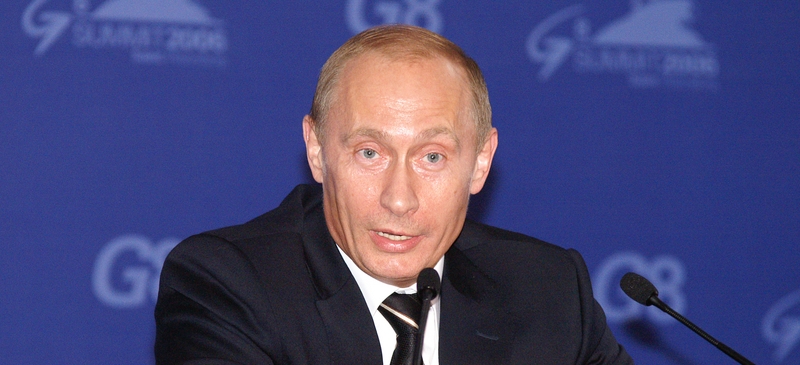
What Putin's return means for the former Soviet republics
Vladimir Putin's re-election as Russia's president, and his absence from recent summits of the G8 and NATO, indicate a hardening of Russian attitudes towards the West.
What does this imply for Russia's relations with the former Soviet republics in Europe and Central Asia? The EU and NATO have little interest in further enlargement; yet Moscow's policy towards the 'near abroad' still matters. For example, clashes with Russia on issues such as Moldova's right to join the EU could derail co-operation on issues such as Iran's nuclear programme.
In October 2011, Putin proposed the creation of a 'Eurasian Union', a political grouping of some former Soviet republics, with Moscow at its centre. Kremlin watchers say Putin believes that each great power should have its 'entourage', and that the West will take Russia more seriously if it leads a cluster of neighbours. Putin's latest effort to constitute such a group is a reversal of sorts: under his predecessor, Dmitry Medvedev, Moscow reduced subsidies on oil and gas exports to Belarus and Ukraine, and refused to intervene in Kyrgyzstan when a revolt toppled the president there in 2010. Russia has never relinquished the ambition to exercise economic and political control over its neighbours, but lately it had been more hands-off.
Putin's Eurasian Union may well succeed where previous integration projects such as the 'Eurasian economic community' failed. First, it makes economic sense for Russia: the proposed membership only includes Moscow's important trade partners (Belarus, Kazakhstan and Ukraine), which have energy resources and other businesses Russia covets. When poor Kyrgyzstan expressed interest in joining, Moscow demurred. By cherry-picking members who hold assets of interest to Russia, the Kremlin made the idea of a workable Eurasian Union more credible.
Second, the US and EU governments are focused on ending the economic crisis and are paying less attention to foreign policy issues. In the past, the US and the EU would have given political support and money to help build the economies and political systems necessary for former Soviet satellites to stand independent from Russia. Today, such help is in short supply.
Third, Eastern Europe itself has become less attractive to the West. The governmentof Ukraine, the most populous of the countries between the EU and Russia, has persecuted political opposition and curbed freedom of speech. It has also mismanaged the Ukrainian economy. Belarus, the most authoritarian of East European countries, has periodically flirted with reforms and the prospect of drawing close to the EU. Butsince his re-election in 2010, President Lukashenka has cracked down on the opposition and relations with the EU are in deep freeze. Many Western governments have concluded that they cannot help a region that does not want to help itself.
The crisis of democracy in Ukraine and Belarus favours Russia: it has discouraged Western investors and made key former Soviet republics dependent on Moscow's aid and investment. Russian companies control seven of Belarus' 32 banks. Last November, Minsk handed control over its gas transit system to Gazprom in exchange for loans. Ukraine needs help with repaying €4.2 billion in loans in 2012, and may be forced to surrender control of its oil and gas pipelines to Russia in exchange for financial assistance. But the causes of the two countries' misfortune have little to do with Putin or his return; Moscow has benefited from, not instigated, misguided Ukrainian and Belarusian policies.
Moldova will feel Russia's renewed interest in the neighbourhood most acutely. Shortly after Putin's election, Moscow appointed the nationalist politician Dmitry Rogozin as point man for relations with Moldova and the Transnistria region, which broke away in the 1990s. The selection of a strongman suggests that Russia will only tolerate reconciliation in the country on Moscow's terms, likely to include a pledge by Moldova to eschew a free trade deal with, and membership of, the EU. While Moldova is not among the countries mooted for Eurasian Union membership, Russia seems keen to make sure that it does not join alternative groups either.
Notwithstanding Putin's foreign policy ambitions, Russia will be distracted by economic issues and the maintenance of internal political stability over the coming years. Moscow will devote less than full attention to the Eurasian Union, though it will systematically seek to deny the former Soviet republics closer ties with the EU. And Russia will have plenty of opportunities to do so, thanks to the EU's waning interest, and to economic incompetence and authoritarian tendencies in Minsk and Kyiv.
